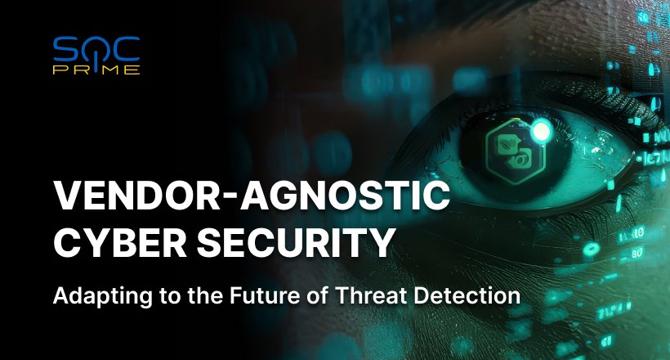Socprime
1M
246

Image Credit: Socprime
Vendor-Agnostic Cybersecurity: Adapting to the Future of Threat Detection
- Organizations need the agility to adapt, migrate, and use multiple security solutions without being tied down by proprietary formats for managing their security operations in today's fast-moving technological landscape.
- Adopting cross-platform and supplier-independent threat detection frameworks such as Sigma and Roota rules and Uncoder AI becomes crucial for organizations to address the challenges related to platform-specific tools for threat detection and response.
- Vendor lock-in can lead to lack of flexibility for organizations in adapting to changing security needs, technological obsolescence, and rising costs, and hence vendor-agnostic approach for threat detection becomes important.
- SIEM vendors have shifted towards subscription-based services, cloud-only models, various segmented offerings, and mergers, and hence a vendor-neutral approach is needed for organizations.
- Sigma and Roota rules and Uncoder AI make detection logic portable and free from being locked into a security provider's product or format, allowing organizations to switch between vendors and technologies without disruptions.
- Decoupling detection logic from a specific security solution allows security teams to focus on actual threat detection and mitigation. Using tools like Uncoder AI enables better knowledge sharing, rapid response time, fosters better collaboration across teams in security operations.
- By adopting a vendor-agnostic approach, organizations can break free from the constraints of vendor lock-in, reduce operational costs, and future-proof their theta detection capabilities.
- Modern cybersecurity requires flexibility, scalability, and the ability to operate across multiple platforms, and hence organizations need to embrace tools that allow them to be nimble, efficient, and ready for whatever comes next.
Read Full Article
14 Likes
For uninterrupted reading, download the app